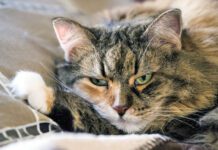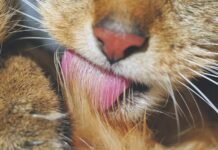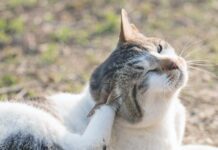Living with an older cat is like experiencing a personal relationship that has matured over the years – comfortable and satisfying. The age at which a cat reaches the golden years varies between 7 and 11.
A senior cat experiences a decrease in metabolism and muscle mass, the skin becomes thinner, and she may lose weight. A feline seniors immune system may be less able to fight off disease or infection, and hearing and vision decline. The gastrointestinal tract is slower to absorb nutrients, and senior cats may be constipated more often.
Try to recognize subtle changes
Because a cat hides signs of illness, your senior cat will depend on you more than ever to detect problems early, when they can be treated. Observation starts at home, says Ilona Rodan, DVM, owner of The Cat Care Clinic in Madison, Wisconsin.
Many conditions may have the same signs, such as weight loss, diminished appetite, infrequent grooming, discomfort, slowing down, or increased thirst.
People may think drinking more water is good, says Rodan, who is board certified by the American Board of Veterinary Practitioners. But drinking more water than usual or large puddles of urine in the litter box are usually signs of underlying problems.
Subtle changes can be the most significant. The cat may vomit more or have difficulty passing stools, says Rodan.
Grooming help
Cats are fastidious by nature, and older cats are no exception. Most older cats keep their coats in great shape if grooming is not painful, says Rodan. Arthritis or stiffness may keep a senior cat from bending to wash. Loose or painful teeth may keep a cat from removing nail sheaths. A cat that doesnt feel good may have a greasy, matted, or flaky coat from lack of washing.
Keep your cats coat in great shape with regular brushing and combing. Clip your cats nails monthly. An older cats nails dont wear down as fast, says Rodan. Older cats are not as active, and nails may become more brittle.
Sight clues
Your older cats sight may decline, and eye appearance may change. Most pigment spots in the iris are not a problem, says Rodan. If rapid changes occur or if there are dark or black or raised spots, it may mean a tumor, and your cat should be seen by a veterinarian right away. In such cases, a board certified ophthalmologist may recommend laser surgery or remove the eye entirely. It depends on the size and location of the spot and if it has spread, says Rodan.
Cloudiness of the lens in the eye may occur in seniors, but usually do not cause serious problems. Older cats may become more sensitive to light or maybe they cant see as well in the dark, says Rodan. If your cat is losing vision, put a night-light by litter boxes, suggests Rodan.
Oral care
Dental problems seem to catch up with senior cats, especially if oral hygiene has not been a priority. Many cats with other problems also have dental disease, says Rodan.
Having your cats teeth cleaned regularly is the best defense against advanced dental problems. A healthy senior cat will experience no more risk from anesthesia than a younger cat, says Rodan, explaining, Pre-anesthetic testing to identify potential problems, newer anesthetic protocols, and monitoring equipment make anesthesia relatively safe. The risk of bacterial infections and the pain of dental disease, which may prevent the cat from eating well, are far greater concerns than worrying about anesthesia.
Just as humans see their doctors more regularly as they age, so should senior cats. To intercept a potentially fatal illness while still treatable, many veterinarians now recommend cats over the age of 7 have a check-up twice a year. Since cats age more rapidly than humans, seeing the veterinarian twice a year is comparable to a senior human visiting the doctor every three to four years.



